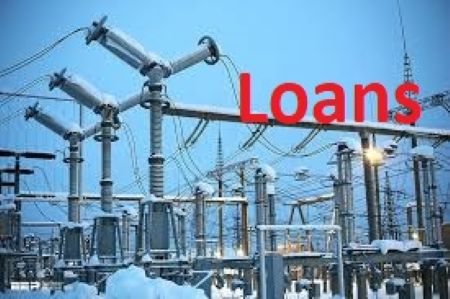Nigeria has secured at least $1.25 billion in loans from the World Bank and the African Development Bank (AfDB) to boost electricity supply under the administration of President Bola Tinubu.
On December 14, 2023, the World Bank approved the $750 million Distributed Access through Renewable Energy Scale-up (DARES) project in Nigeria.
More recently, on July 31, 2024, the African Development Bank Group (AfDB) approved a loan of $500 million to the Federal Republic of Nigeria to help transform the country’s electricity infrastructure and improve access to cleaner energy sources.
World Bank’s $750 million DARES loan to Nigeria
The loan from the World Bank is structured into three distinct segments, cumulatively forming the $750 million total financial package.
This package is segmented into credits of $350 million, $250 million, and $150 million, each earmarked for different facets of the project and subject to currency conversions as necessary.
The primary implementers of this project are the Rural Electrification Agency (REA) and the Lagos State Electricity Board (LSEB), with significant support from the Federal Ministry of Power, the Nigerian Electricity Management Services Agency (NEMSA), the Federal Ministry of Environment, the Nigerian Electrification Regulatory Commission (NERC), and the Federal Ministry of Finance.
According to the press release announcing the loan approval, $750 million credit from the International Development Association (IDA), is being used to leverage more than $1 billion from private investors and additional funding from different partners.
Contributions include $100 million from the Global Energy Alliance for People and Planet and $200 million from the Japan International Cooperation Agency (JICA).
Other collaborators in this initiative include the United States Agency for International Development (USAID), the German Development Agency (GIZ), Sustainable Energy for All (SEforAll), and the African Development Bank (AfDB).
This ambitious DARES project aims to provide over 17.5 million Nigerians with better access to electricity through distributed renewable energy solutions. The goal is to tackle the electricity access deficit.
The DARES program will assist the Federal Government of Nigeria in coordinating and financing off-grid electrification efforts. It will also aid states in developing capacity and policies to promote rooftop solar energy.
Nairametrics earlier reported that the federal government plans to provide subsidies to developers and operators of solar mini-grids in unserved and underserved areas in the country. The subsidy will be provided through a World Bank-approved loan of $750 million under the Distributed Access through Renewable Energy Scale-up (DARES) project.
AfDB’s $500 million electricity loan to Nigeria
According to a statement from the AfDB, this funding will finance the first phase of the Economic Governance and Energy Transition Support Program (EGET-SP), aimed at transforming the country’s electricity infrastructure and improving access to cleaner energy sources.
The statement also noted that the loan will help close the financing gap in the Federal Budget for the 2024/25 fiscal year, specifically supporting the implementation of Nigeria’s new Electricity Act and the Nigeria Energy Transition Plan. These initiatives are designed to decentralize the electricity supply industry and attract investments from subnational governments and the private sector.
Nigeria has secured approval of nearly $2 billion in loans from multilateral organisations, especially the World Bank before Bola Tinubu became president.
For instance, on June 23, 2020, the World Bank approved $750 million as a loan for the Power Sector Recovery Operation (PSRO) project to improve the reliability of electricity supply, achieve financial and fiscal sustainability, and enhance accountability in the power sector in Nigeria.
Nigeria also got the approval of $500 million on February 4, 2021, for the Nigeria Distribution Sector Recovery Program (DISREP) aimed at improving Nigeria’s electricity distribution sector. This program performed below expectation, which led to the World Bank planning a supervision mission, scheduled from July 8 to July 12, 2024, in response to the persistent challenges and underwhelming progress of the program.
There is also the Nigeria Electrification Project (NEP), for which Nigeria got an approval of $350 million on June 27, 2018. The World Bank recently restructured the loan to Nigeria to ensure the completion of seven critical power plants in educational institutions, bolstering the nation’s energy infrastructure. According to the Restructuring Paper, this restructuring involves an extension of the project’s closing date, with the new deadline for the loan project set to December 31, 2024.
Despite all the loans approved to Nigeria, the power sector still struggles as Nigerians face poor electricity supply.


